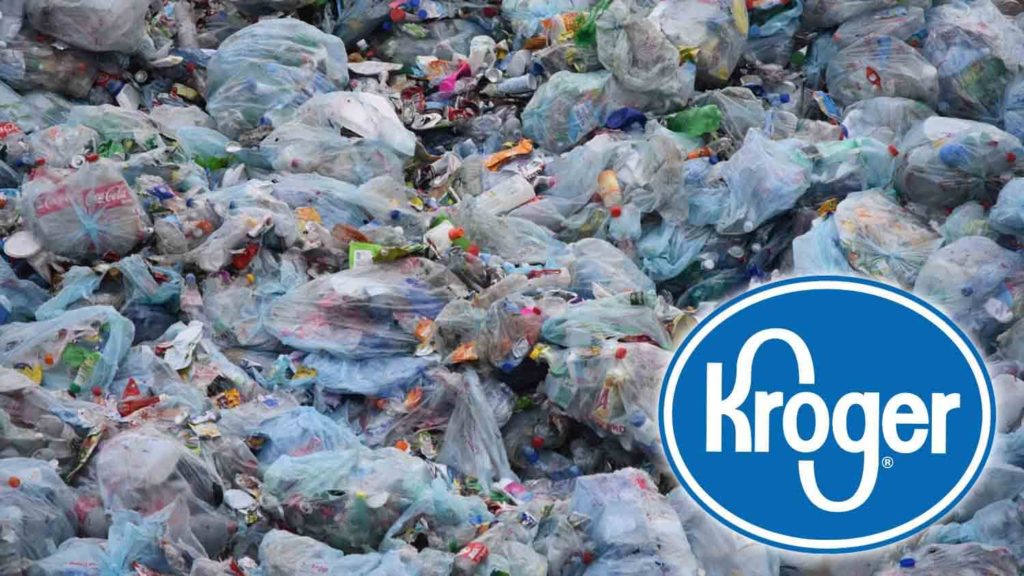Kroger is set to ditch more than six billion single-use plastic bags by 2025.
The supermarket chain — reported to be the United State’s largest by revenue — will transition to more environmentally friendly and sustainable materials, reports Wilx, to do its bit to fight plastic pollution and reduce waste.
The retail giant previously distributed around six billion plastic bags per year but it will now offer consumers paper bags as well as more durable, reusable bags, priced between $1 and $2.
Wilx notes that the move is part of the company’s Zero Hunger, Zero Waste initiative.
Becoming a Zero Waste Company

In 2017, Kroger announced its goal of becoming a zero waste company by 2020 and a zero food waste company by 2025. It will achieve the latter through “prevention, diversion, and donation efforts,” notes a press release. It aims to eliminate hunger by donating three billion balanced meals to people facing food shortages “in the places Kroger calls home.”
Kroger not only hopes to help people facing hunger with its initiative, but also the environment. It’s working closely with the World Wildlife Fund as well as Feeding America to ensure its targets are met.
“By wasting less food, we can reduce the environmental impact of food production while also conserving biodiversity and wildlife habitat,” said Sheila Bonini, the Senior Vice President, Private Sector Engagement at WWF in 2017.
Companies Waking Up to Environmental Responsibility
Kroger isn’t the only major company to act on its environmental responsibility. Whole Foods Market pledged to reduce its plastic usage by an estimated 800,000 pounds, and Disneyland Paris has removed plastic straws entirely.
In April, Etihad Airways became the second airline in the world to operate a single-use plastic-free flight. And in May, it was reported that Australia had reduced its plastic pollution by 80 percent, thanks to a ban on single-use plastic in two of the countries major retailers,
Many businesses are also serving more plant-based food in a bid to become more sustainable.
From fast food chains like McDonald’s and Burger King to supermarkets like Trader Joe’s in the U.S. and Tesco in the UK, new vegan food options — widely reported to be better for the planet, human health, and animal welfare — are soaring in popularity. It’s predicted that the vegan food market is currently worth $3.7 billion, and is only set to keep growing.


